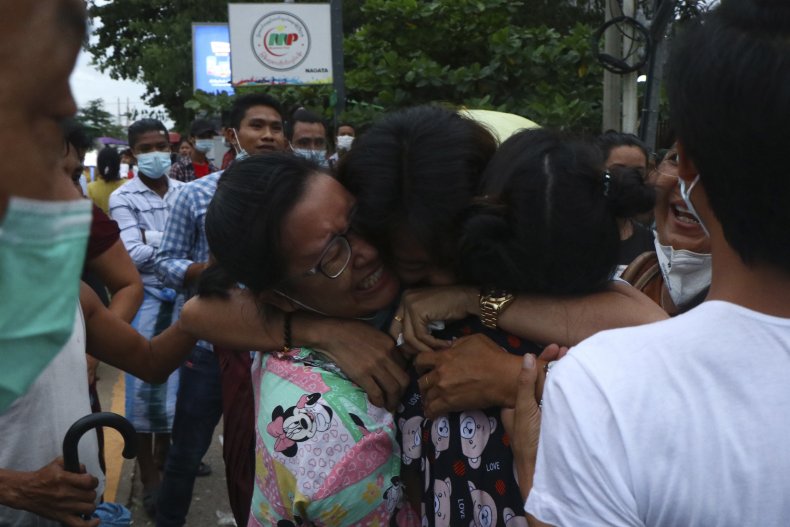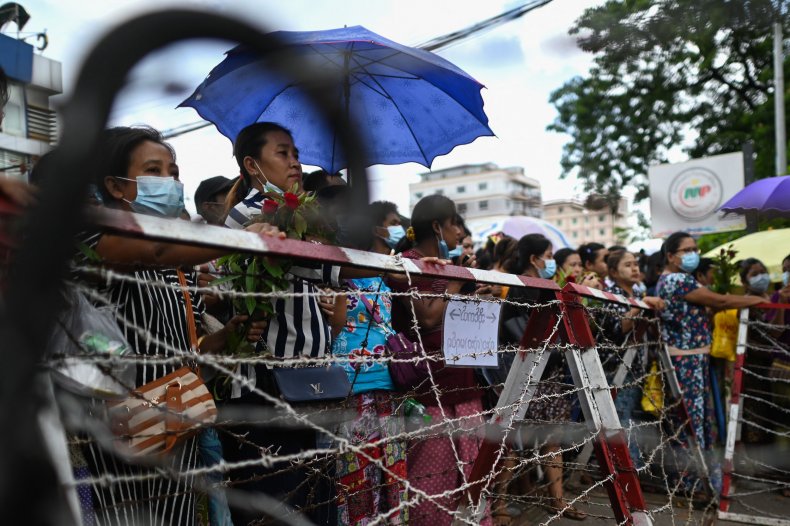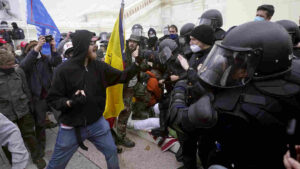Myanmar plans to release around 2,300 prisoners nationwide who “did not lead” riots over the military’s coup and total power grab in February, an official said.
Political prisoners, including activists and journalists, began to be released on Wednesday as more than 720 were freed from the country’s main jailing facility of the Yangon Region’s Prison Department, confirmed the prison’s leader Zaw Zaw according to the Associated Press. However, it seemed some activists and journalists remain imprisoned.
Deputy Information Minister Maj-Gen Zaw Min Tun told China’s Xinhua news agency that prisoners being released were “those are who took part in the protests but did not take part in the violence, who did not commit crimes and did not lead the riots.” He previously announced the release of around 2,300 detainees.
Still, 5,224 people are imprisoned for their involvement protesting against Myanmar’s military junta, said The Assistance Association for Political Prisoner on Tuesday.
For more reporting from the Associated Press, see below:
STR/AFP via Getty Images
Buses took prisoners out of Yangon’s Insein Prison, where friends and families of detainees had waited since morning for the announced releases. It is standard practice to take freed prisoners to the police stations where they were originally booked to complete the processing for their freedom.
The Yangon Region’s Prison Department for decades has been the main facility for political prisoners.
The Assistance Association for Political Prisoner keeps detailed tallies of arrests and casualties linked to the nation’s political conflicts.
Most political prisoners are held on a catch-all charge of inciting disorder and public unease, or seeking to disrupt the work of civil servants and members of the military. Depending upon the exact offense, such charges carry a maximum prison term of two or three years.
There was no reason given for the timing of the releases. Myanmar is facing a surge in COVID-19 cases, with 1,312 new infections reported Tuesday, bringing the total number of confirmed cases to 155,697. Crowded conditions make prisons high-risk areas for the virus, though there was no official word if that threat played a part in the releases.
The political turmoil has made the country’s health care system largely dysfunctional, severely limiting COVID-19 testing and reporting until about a month ago, when the number of confirmed cases shot up rapidly.
The government is also eager to cultivate goodwill among the public, a large part of which is hostile to it. On Tuesday it announced it was dropping charges against about two dozen celebrities who had taken a role in the protests.
The government would also like to soften its international image. The U.N. General Assembly on June 18 passed a resolution calling for an arms embargo against the Southeast Asian nation and condemning the military’s seizure of power. Several Western nations have already implemented diplomatic and economic sanctions.

Uncredited/AP Photo



















